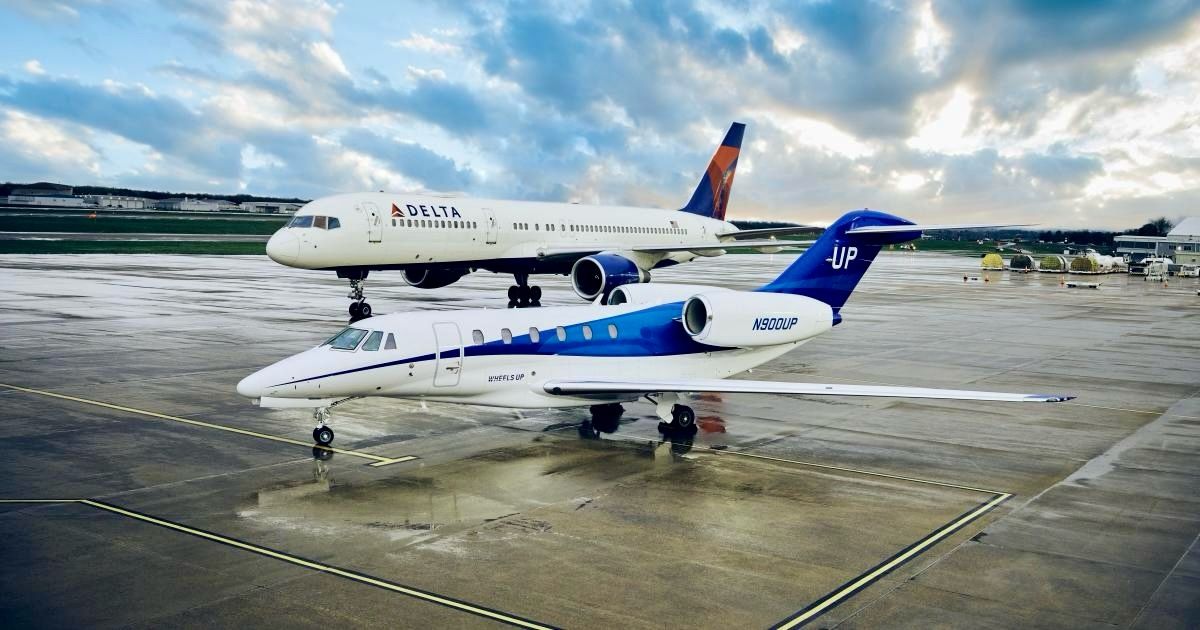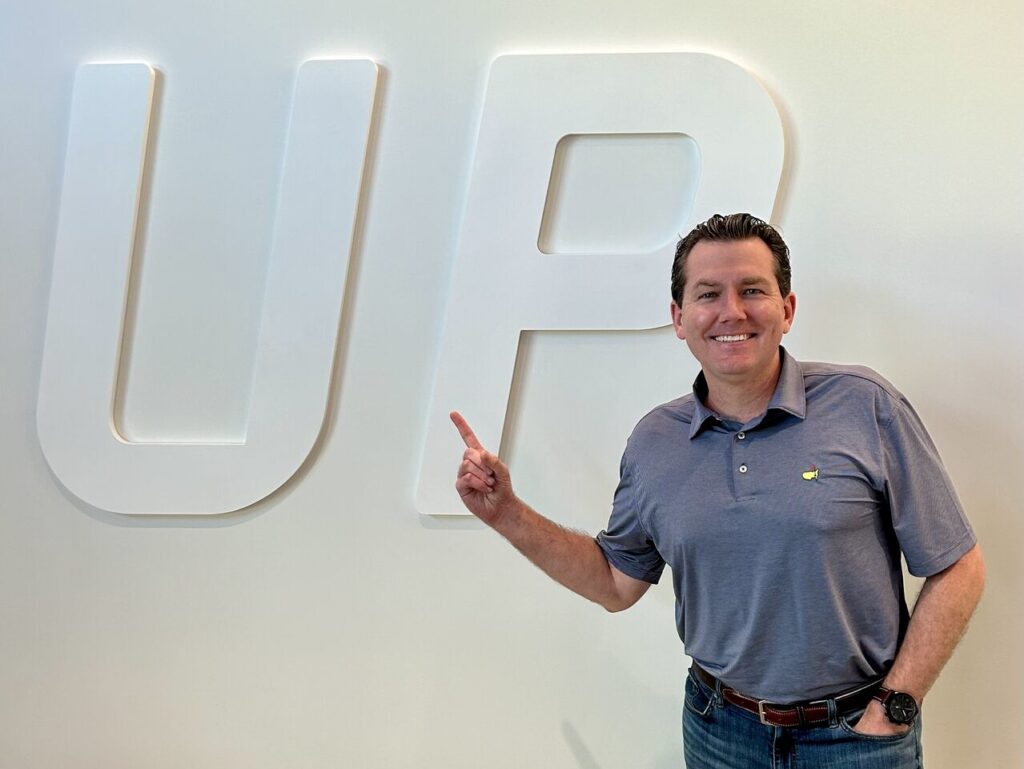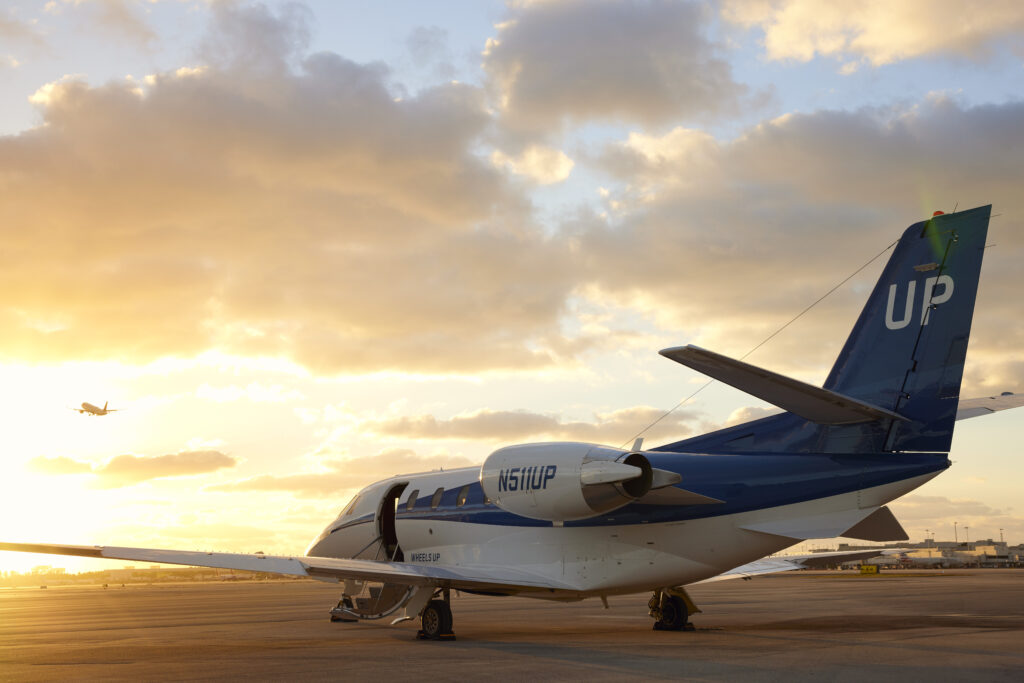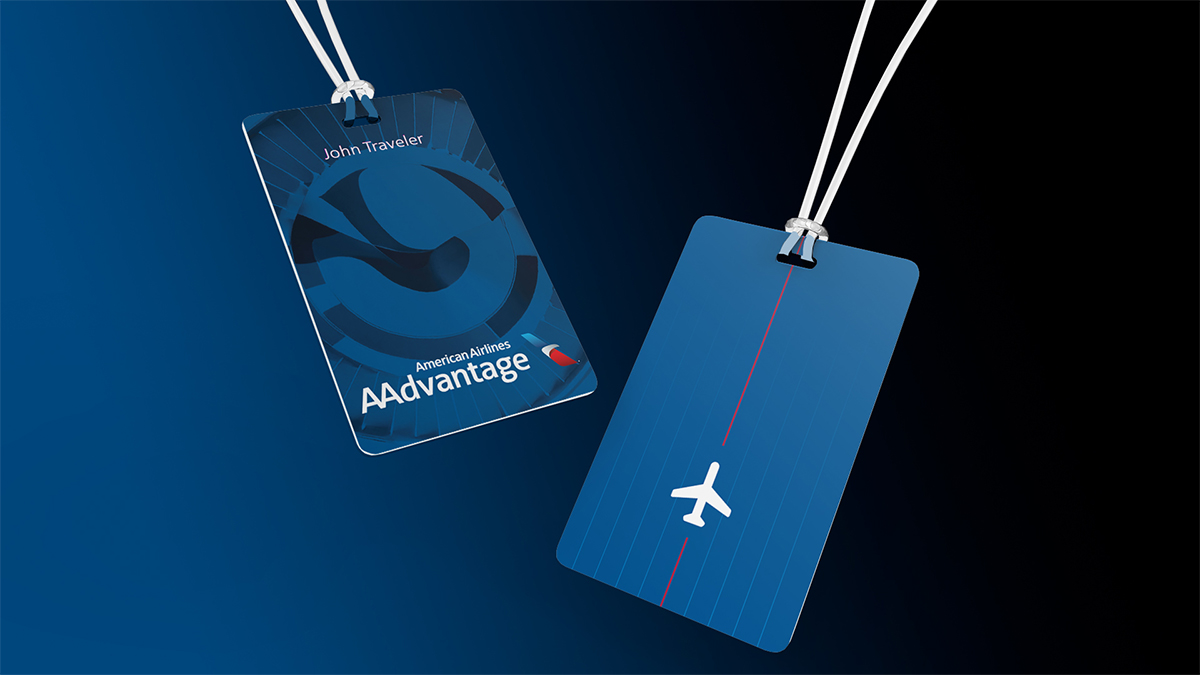Wheels Up CCO: How We’re Turning Things around with Delta
New CCO Dave Harvey breaks down the airline's transformation in the midst of financial challenges
August 14, 2024

Photo: Courtesy of Dave Harvey / LinkedIn
In the world of private aviation, where luxury and exclusivity often overshadow practicality, Wheels Up seems to be rewriting the rules. With a strategic partnership with Delta Air Lines and a fresh approach to technology, the company is poised to make private flying not just a privilege but a smart choice for a new generation of travelers.
At the heart of this transformation is Dave Harvey, a seasoned airline executive whose 25-year tenure at Southwest Airlines has uniquely equipped him to steer Wheels Up into uncharted skies.
As Harvey brings his customer-centric philosophy to this evolving private aviation enterprise, the question isn’t just how Wheels Up will adapt and redefine the entire industry while conquering the difficult goal of turning a profit after a challenging post-pandemic era.
From Southwest to Wheels Up
Dave Harvey’s transition from Southwest to Wheels Up might seem like a leap from one world to another, but for him, the move was more about continuity than change.
“When I first looked at the opportunity at Wheels Up, I wondered how much of my experience from the commercial aviation sector was transferable,” he recalls. “I was pleasantly surprised to find that more was transferable than I initially imagined. At the end of the day, running an operation is about customer service, which my previous employer excelled at.”

Photo: Courtesy of Dave Harvey / LinkedIn
Harvey’s focus at Wheels Up has been refining its business model and leveraging its strategic partnership with Delta. “Historically, Wheels Up was very over-indexed to high-net-worth individuals and was more of a lifestyle brand. As we’ve evolved, particularly with Delta’s partnership and support, we’re positioning ourselves as a private airline with global solutions,” Harvey explains.
In 2023, Wheels Up scored a $500 million investment deal from major contributors, including Delta, Certares Management, Knighthead Capital Management, and Cox Enterprises.
“This partnership with Delta is helping us win more corporate business, complementing Delta’s extensive network,” Harvey says.
Adapting to Changing Customer Behavior
Talking about post-pandemic dynamics and customer behavior, Harvey notes significant changes that have affected the company’s results.
“During the pandemic, there was a significant increase in private flying as people avoided commercial flights. We saw a huge upswing, and people were booking multiple trips,” Harvey says. As restrictions eased and travelers became more comfortable with commercial flights, demand began normalizing.

Photo: Courtesy of Wheels Up
However, the pandemic has left a lasting impact, with many first-time private flyers discovering the benefits of private aviation and continuing to choose it even as commercial options have rebounded.
“Wheels Up and our partnership with Delta are attracting first-timers who appreciate the ease and flexibility of our service. We have a strong retention rate and are continually winning new customers,” Harvey notes.
Compatibility with Delta
When asked how Delta’s and Wheels Up’s networks are compatible, Harvey explains that adaptability is a cornerstone of Wheels Up’s strategy. “The goal is to complement Delta’s offerings rather than compete with them,” he said.
“We’re not specifically targeting secondary airports,” Harvey added. “While Delta serves around 200 airports in the US, we have the capability to fly to 5,000. Our fleet is flexible, and we can adapt to customer needs.”

Photo: Courtesy of Wheels Up
“For instance, if a customer needs a short one-hour flight, we might use a King Air. For a transcontinental flight, we’d use a super-mid aircraft,” Harvey explained. “We’re not trying to compete with Delta on major routes like Atlanta to New York, but we can complement their network, particularly for corporate travel.”
Furthermore, due to Delta’s strong focus on sales and customer satisfaction, Wheels Up has improved its app to give customers better insight into their loyalty rewards and savings. This level of detailed information, usually found in commercial air travel, represents a new advancement in private aviation.
Customers can now monitor their progress towards redeeming rewards and access detailed breakdowns of their travel history, enabling them to better appreciate the benefits of their membership.
Navigating a New Business Landscape
Expanding on the company’s increased flexibility, Harvey adds that Wheels Up is transforming its approach to private aviation, aiming to be more than just a luxury brand by positioning itself as a dependable, adaptable, and transparent private airline.
A significant part of this transformation is the recent upgrade to the company’s mobile app and website, which introduces new transparency and flexibility for its customers.

Photo: Member Account. Courtesy of Wheels Up.
One of the standout features of this upgrade is the introduction of dynamic Origin and Destination (O&D) pricing—an industry first for private aviation.
Previously, Wheels Up’s pricing was region-based, which limited flexibility and often didn’t offer the most cost-effective options. According to Harvey, the new O&D pricing model changes that by providing real-time, location-specific rates based on the actual availability of aircraft and crews.
“For example,” he explains, “flying from West Palm Beach might be cheaper than from Fort Lauderdale if we have a plane and crew positioned there. The app can also suggest alternative airports to capture savings. This dynamic pricing model helps match supply and demand, offering more value to our customers.”
This pricing approach is not just about finding the lowest fare; it’s about providing customers with choices that fit their preferences and schedules. If a customer is flexible with their departing or arriving airport, the app automatically suggests alternatives, potentially leading to significant savings. This feature is especially valuable for frequent flyers familiar with multiple regional airports who want to optimize their travel costs.

Photo: Charter Account. Courtesy of Wheels Up.
Another key feature of the upgraded app is the “Flexible Plans” option. According to Harvey, customers can select this option to view lower-cost airport pairs and dates, potentially reducing costs per leg of their journey. This feature complements the dynamic pricing model, enabling customers to make informed decisions based on their budget and travel needs.
Harvey explains these features aren’t limited to Wheels Up members; “non-members can also download the app and explore its offerings,” he says. “Though they’ll see market-rate pricing without the additional membership benefits.”
For those who choose to become members, the benefits are substantial. Wheels Up Memberships start at $100,000, with higher tiers offering lower costs per hour, guaranteed aircraft access 365 days a year, and priority service.
Growth and Fleet Expansion
Looking ahead, Wheels Up finds itself in a critical growth phase, exploring various avenues to expand its fleet and enhance in-flight amenities. “We’re considering fleet expansion, improving Wi-Fi, and exploring new opportunities,” says Harvey. With the global reach of AirPartner—a company owned by Wheels Up—they can source aircraft worldwide, adding flexibility and capacity to their operations.

Photo: Courtesy of Wheels Up
However, managing such a diverse fleet poses its own set of challenges, particularly when compared to the uniform fleet Harvey was accustomed to at Southwest. “We operate with six different types of aircraft, a mix of leased and owned, which allows us to optimize efficiency and effectively support our member base,” Harvey explains.
The current fleet is a varied collection, consisting of 56 King Air 350i, 31 Hawker 400XP, 18 Cessna Citation CJ3, 18 Citation Excels, 40 Citation X, and one Gulfstream IV.
Despite this focus on growth and customer satisfaction, Wheels Up remains cautious about overextending itself. “We’re actively listening to our customers to ensure we meet their needs effectively,” Harvey adds.
But as Wheels Up pushes forward with its expansion plans, the company faces significant challenges, particularly in the context of its financial performance. Delta, a major investor in Wheels Up, reported a 29 percent year-over-year profit decline in the second quarter, a trend felt across the airline industry as fares drop and the supply of passenger seats exceeds demand.

Photo: Courtesy of Wheels Up
However, there are concerns about Wheels Up’s financial situation. Despite Delta’s involvement, the private aviation company had a $97 million loss in the first quarter of this year, similar to its losses in the same period in 2023.
Wheels Up has struggled with profitability since it started and has accumulated a $1.86 billion deficit. For Delta, which is already facing economic challenges and is mitigating the aftermath of a major IT meltdown that could cost the carrier $500 million, addressing the financial issues of its private aviation subsidiary is not an option but a necessity.
The next steps will be crucial for the future of Wheels Up and for Delta’s broader strategic goals in the aviation market.




